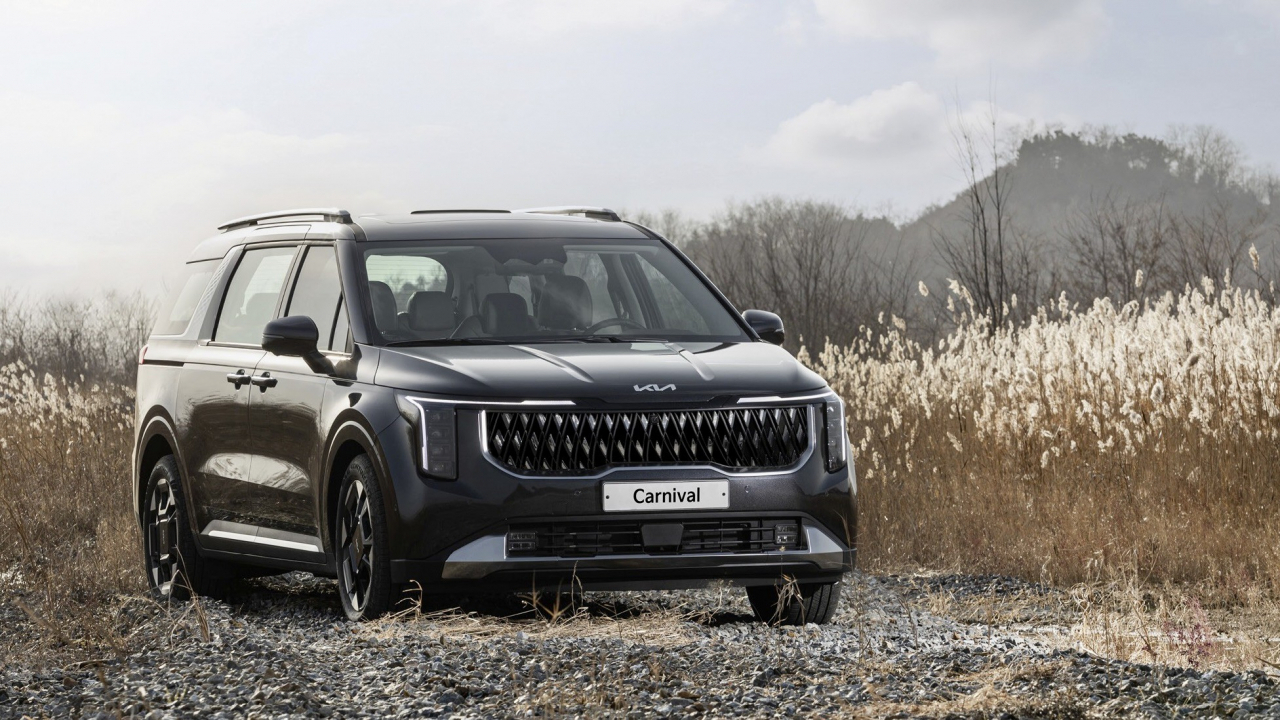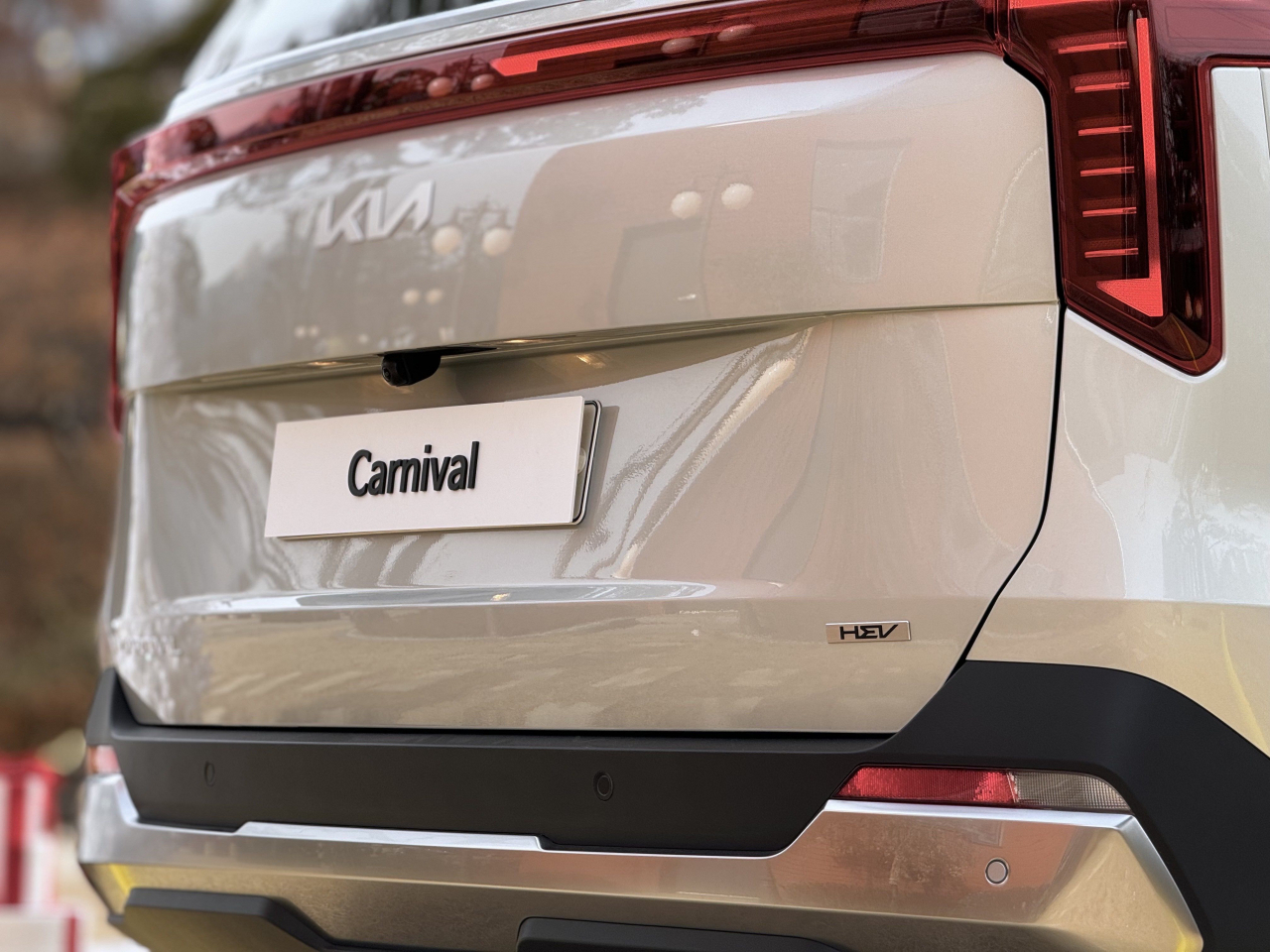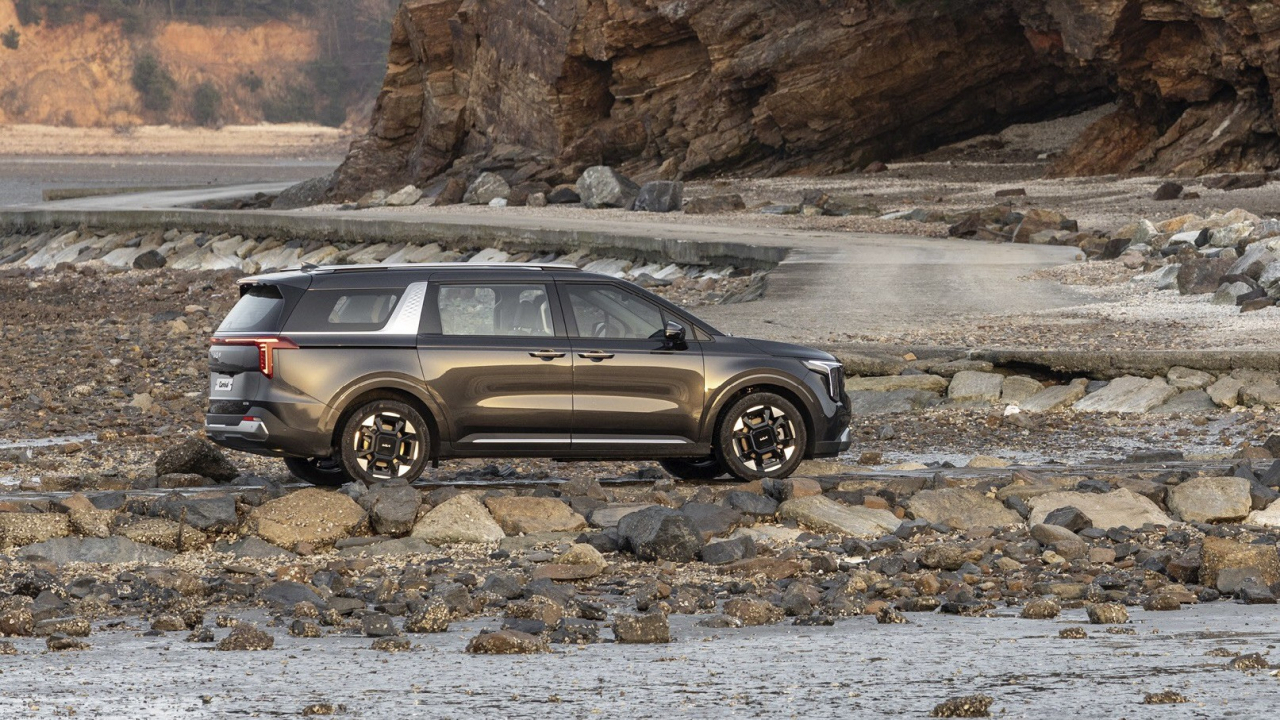[Test Drive] Kia refines family favorite with first hybrid Carnival
By Moon Joon-hyunPublished : Dec. 20, 2023 - 16:25

The Kia Carnival, a top choice for a family vehicle in South Korea, reflects the classic American family minivan.
Three years after the success of the fourth generation, Kia is upping its game with a revamped Carnival lineup, most notably with its first-ever hybrid model that tackles the vehicle's main shortcoming: fuel efficiency.
The hybrid model, entering its precontract phase last month alongside other models, has quickly attracted consumer attention, with hybrids making up 70 percent of all new Carnival orders.

Kia's Carnival Hybrid demonstrated a range of new capabilities on an 82-kilometer drive from Goyang to Paju, in Gyeonggi Province, and back, in a test drive by The Korea Herald on Tuesday.
Despite its sizable frame, the 1.6-liter turbo engine coupled with the electric motor delivered a robust and refined performance. Officially, it promises a fuel efficiency of 13.5 kilometers per liter (about 31.75 miles per gallon) -- just a little lower than the latest Toyota Sienna Hybrid at 14.0, which leads this segment in the US.
The reporter's test reported fuel efficiency of 13 kilometers per liter in mixed usage, including all three Eco, Smart and Sports modes -- slightly below the official figure but much higher than its gasoline counterpart, which hovers around 9 kilometers per liter at best.
The new Carnival's design combines minivan functionality with SUV-like aesthetics, as seen in its spacious interior and sliding rear doors. The interior remains spacious, mirroring the original Carnival, with cargo space ranging from 630 liters in the seven-seater to 680 liters in the nine-seater. The only hiccup is the second-row seats; while power-adjustable, they don't fully fold, restricting cargo versatility.
On the road, the hybrid switched between the electric motor and the engine with hardly any jolting. At lower speeds or gentle acceleration, the electric motor took the lead most of the time. Push the pedal down for a quicker pace, and the engine kicked in, pairing the motor with considerable power. That said, the Eco mode did rein in the performance a bit, leading to slower acceleration and a palpable delay in engine response.

Handling was surprisingly steady for a vehicle of its size, likely aided by new technology that modulates braking and acceleration across wheels during turns. Although the driving noise was lower than in non-hybrid models, wind noise was noticeably loud in the second row at speeds over 100 kilometers per hour. Still, the overall ride quality felt appreciably better than the previous generation, with reduced tremors on uneven roads, thanks to the integration of advanced shock absorbers that were exclusive to high-end Hi-Limousine models.
Outfitted with Kia's latest driving tech, the new Carnival Hybrid consistently fine-tuned the steering during the drive, which was particularly useful given the minivan's substantial width.
Kia has also introduced what it calls a "traffic jam optimized control" feature that is exclusive to the hybrid. It intelligently times the hybrid engine's start based on real-time traffic data to smooth out those frequent, tiresome starts and stops in heavy traffic, leveraging the hybrid's electric motor for efficient, low-speed maneuvering.
Price-wise, the hybrid models start at 39.25 million won ($30,230) for the seven-seater configuration. The price gap between the hybrid and its gasoline or diesel counterparts ranges from 2.57 million to 4.55 million won. Even at the top-end price of 57.64 million won for a fully-equipped seven-seater hybrid, the Carnival Hybrid makes a strong case for itself, combining efficiency, spaciousness, driving comfort and advanced technology.
Buyers in international markets can expect its arrival in the first half of 2024.











![[Kim So-hyun] The quiet taxi driver from Paris](http://res.heraldm.com/phpwas/restmb_idxmake.php?idx=644&simg=/content/image/2024/04/25/20240425050891_0.jpg&u=)







